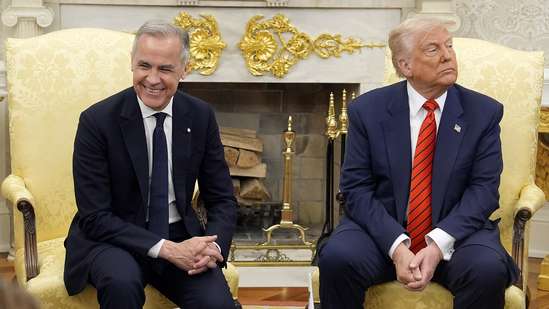In a recent and unexpected statement, former U.S. President Donald Trump claimed that Canada desires to become part of the United States. Trump further escalated the discussion by offering what he called a “Golden Dome” proposal, sparking a flurry of reactions from political analysts, government officials, and the public. The remark has reignited debates on North American relations and territorial sovereignty amid ongoing economic and geopolitical shifts
Donald Trump, known for his provocative rhetoric, made headlines again with his assertion that Canada wishes to merge with the United States. The former president’s comments came during a rally, where he suggested that Canada’s leadership has quietly expressed interest in becoming an official U.S. state. Trump elaborated by unveiling a symbolic “Golden Dome” offer—an invitation representing prosperity and unity under American governance.
The term “Golden Dome” was described by Trump as a metaphor for opportunity, promising enhanced economic growth and national security benefits if Canada were to consider joining the union. This unprecedented statement has caught many by surprise, considering the long-standing mutual respect for sovereignty between the two countries.
Political experts and Canadian officials quickly responded to Trump’s remarks. Canada’s Prime Minister’s Office dismissed the claim as “baseless and purely speculative,” emphasizing the country’s commitment to maintaining its independence and bilateral cooperation with the United States on trade, defense, and environmental issues.
The claim also triggered mixed reactions within the United States. Some political commentators view the statement as a strategic ploy by Trump to stir nationalist sentiments ahead of upcoming elections, while others see it as an unrealistic suggestion with little chance of serious diplomatic consideration.
Historically, the relationship between Canada and the United States has been characterized by close economic ties and cultural exchange, with both countries benefiting from partnerships such as the United States-Mexico-Canada Agreement (USMCA). However, discussions about territorial integration remain highly sensitive, touching on national identity, governance, and international law.
Conclusion:
Donald Trump’s recent assertion that Canada wants to join the United States, coupled with his “Golden Dome” offer, has stirred controversy and debate across North America. While dismissed by Canadian leaders as unfounded, the claim highlights the complexity of US-Canada relations and underscores the political strategies at play in contemporary discourse. As both nations continue to navigate their partnership, the concept of territorial unification remains a provocative yet distant idea, reminding observers of the delicate balance between cooperation and sovereignty in international affairs.



